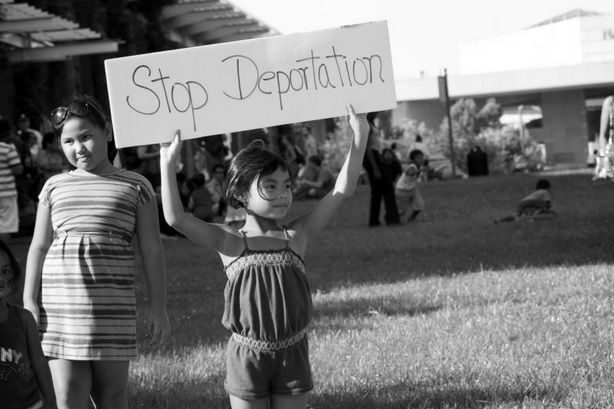Tatiana Sanchez (former writer at The San Diego Union-Tribune), covers news on immigration and the region’s multicultural communities. Before joining the U-T, Sanchez was an investigative reporter with The Desert Sun in Palm Springs, where she covered social justice topics ranging from immigration to LGBT issues and women’s rights. Sanchez received a master’s in journalism from Columbia University.
Tatiana wrote this story about the family separation situation that is resulting from hispanic mothers being deported and forced to leave their children in the US, while they are trying to take control of their sons’ and daughters’ lives from the other side of the border.
It was 3:30 a.m. when Emma Sanchez kissed her husband goodbye as he left for work one June morning. As Michael Paulsen took the couple’s three children back across the U.S.-Mexico border, Sanchez went back to bed.
Hours later, she woke up to an empty two-story house in the outskirts of Tijuana.The couple has followed the same routine for a decade.
Deported to Mexico in 2006, Sanchez has lived on her own in Tijuana while Paulsen and their three young sons, all U.S. citizens, live in Vista.Their separated, cross-border lives form part of the national debate over U.S. immigration policy.
In the first half of 2014, U.S. Immigration and Customs Enforcement deported 22,088 unauthorized immigrants who claimed to have at least one U.S.-born child, according to the agency’s most recent data. Experts and activists estimate that hundreds of these parents live in Tijuana.
“The degree to which the family unit and women and children have become the (immigration) flashpoint is without precedent,” said Ev Meade, director of the Trans-Border Institute at the University of San Diego. “Historically, we’ve never had a situation where families have been separated like this.”




